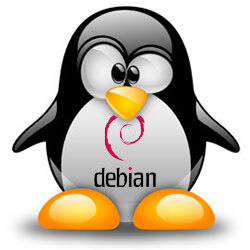I would prefer something based on Debian, like Ubuntu or PopOS, but I’m open for other suggestions as well, as I’m looking for a distro to daily-drive on my new Framework laptop.
Why not directly Debian ?
This is the way. Why go through middle man when you can go straight to the source.
Just remember, stable is for servers, testing is for workstations.
Stable isnt just “for servers”. I run stable on my laptop as well
OP said they dont need it for gaming, so you dont need the latest, shiniest things. Stable + backports should be good enough for most people unless you’re doing some really specialized work
Also flatpak may be a convenient way to get the latest and shiniest on Stable.
Also flatpak may be a convenient way to get the latest and shiniest on Stable.
I don’t think distro choice is that important. If you’re already comfortable with something deb based get that.
I know you said you want something Debian-based, but Fedora is my go-to distro for daily driver workstations. Rock solid, has up to date software, and the release upgrade process has never failed me.
So, I know I could just look this up and get answers off google, but for the sake of conversation, why do you prefer Fedora over something like say, Mint?
I have bounced around through several distros (Mint, Ubuntu, Arch, Pop, a bit of Slack), and have always found something in each that could draw me in. What does it for you in Fedora?
Fedora is pretty cutting edge (updating package versions every 6 months), while still being rock solid. The release upgrade is also the most reliable one I’ve had to deal with - I successfully upgraded an ancient install by 10 versions once.
Gotcha. For those that are happy with the upgrade process and stability of what they are on though, is there anything that makes it more enticing?
I may end up giving it a go just to round out my experience with the various flavors and get some real experience with RPM.
Honestly, Linux is Linux. Once you’re comfortable enough, that’s really all that differentiates distros between each other. (Minus weird shit like glibc vs musl, nixOS, etc) It’s just been the closest experience I’ve had to “it just works” when it comes to Linux desktop.
I should also shout out that Fedora tends to embrace existing standards rather than make their own (cough Cannonical cough Snap). I’m also a big fan of some Fedora projects, particularly Fedora Silverblue
You’ve named three great suggestions. There was a new stable Debian release two days ago. A decade ago, I found Debian stable a bit too stale and testing buggy, but things have changed for the better with flatpak being as ubiquitous as it is.
Just make sure to get the non-free firmware iso if you think you might need it for something like wifi.
I find snap on Ubuntu annoying, slow and the cli tool cryptic. I’d probably use PopOS in preference to Ubuntu just because of that.
Finally, the difference between using a Debian vs Fedora vs Arch derivative isn’t as much as it’s hyped up to be. It’s really the release cycle and QA that matter and that’s personal taste.
Either PopOS or Fedora would be my choice for a no hassle distro. The new Cosmic DE that System76 is making for PopOS looks pretty nice.
@Gamer153
Debian 12 is actually a good option. This latest release has really transformed it into a much more viable option.I just recently switched from my favourite distro (Linux Mint), and I have no regrets.
I’ve using Pop!_OS on my 11th Gen Intel since I got it three years ago and have been pretty happy with it. I would suggest some of these tweaks for fingerprint/power etc, you don’t have to apply them all but you can see what makes sense for you: https://github.com/lightrush/framework-laptop-formula
Congrats in your new framework? Intel 13th Gen?
yep, got the new 13th gen - thanks for the link to the repo, it seems really helpful




